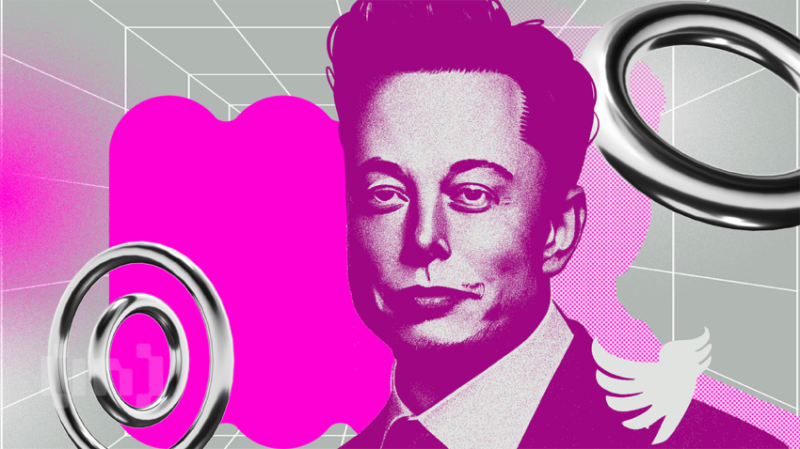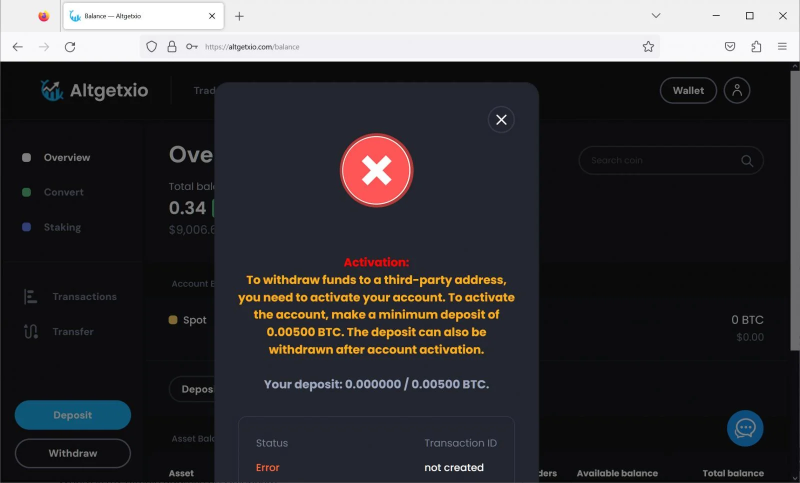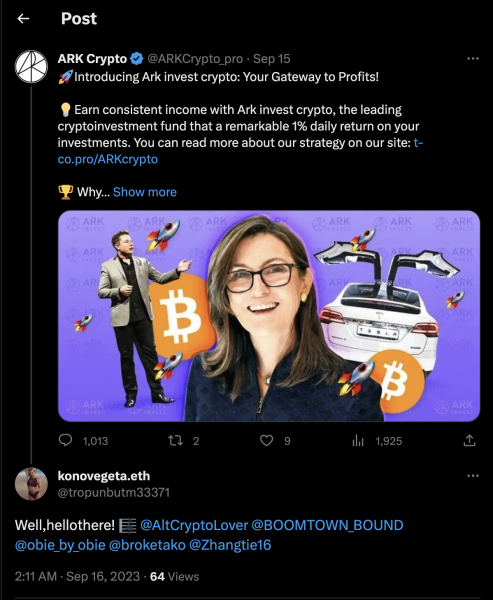
While bad actors used to use text messages and X (Twitter) posts to target victims, widespread access to artificial intelligence is changing their game. They are now making deepfake videos of famous personalities such as Elon Musk, Changpeng Zhao, Vitalik Buterin, and many more.
Modus Operandi of TikTok Scammers
A user scrolls through short videos on TikTok, and sees a deepfake video of Elon Musk talking about a new cryptocurrency or a crypto exchange. Out of curiosity, or maybe greed, the user clicks on the link shared in the TikTok video without checking whether Elon Musk is actually endorsing the product.

Elon Musk crypto scams. Source: BleepingComputer
Cybersecurity outlet BleepingComputer tested one of the giveaway scam websites. The website’s user interface showed that the scam crypto exchange had deposited 0.34 Bitcoin (BTC) to users’ accounts.
However, to withdraw the amount, the user must first deposit 0.005 BTC to “activate” the account.
Then scammers stop responding once the funds have been deposited. In some cases, the scammers will also try to steal users’ personal information, citing “know your customers” (KYC) purposes.

The scam website asks users to deposit 0.005 BTC to activate the account. Source: BleepingComputer
Crypto Scams on X (Twitter)
Scammers are not just active on TikTok, but use other social media platforms such as X (Twitter). A simple search of “crypto giveaway” will generate hundreds of phishing tweets, each trying to steal users’ funds through fake giveaways.
Moreover, the scammers use bot accounts to tag users and draw their attention to phishing posts. The screenshot below shows one such post from scammers impersonating Ark Invest and promising a “1% daily return.”
After the post has been published, the bots mention names of crypto enthusiasts through replies.

A screenshot of X (Twitter) account impersonating Ark Invest
Recently, users lost over $700,000 after the X (Twitter) account of Ethereum co-founder Vitalik Buterin was hacked. Through Buterin’s account, scammers posted a link that promised free non-fungible tokens (NFTs). The unsuspecting victims who clicked on the link subsequently lost their NFTs.
Earlier this month, a crypto whale lost $24 million through a wallet approval phishing scam. To be on the safer side, users should avoid interacting with social media posts and videos that promise airdrops, crypto, and NFTs giveaways, whitelist access, or anything for free.
Do you have anything to say about the Elon Musk scam or anything else? Write to us or join the discussion on our Telegram channel. You can also catch us on TikTok, Facebook, or X (Twitter).

